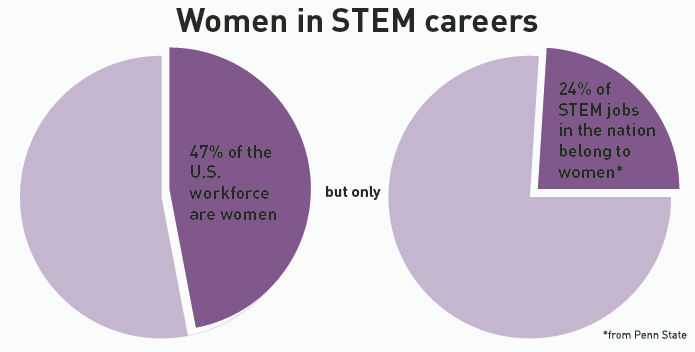Brase: Religion as a Fashion Trend
January 20, 2016
People wearing religious based clothes or trademarks are not always aware that they are or what it means when they do. Religious symbols such as crosses, bindis, hennas, and other styles derived from other countries or religions are being used by people who do not always follow a certain belief.
Crosses are a part of the Christianity religion, and it stands for the death of Christ on the cross so to forgive everyone’s sins and allow them to go to heaven someday.
Bindis belong to Hinduism, and it is a jewel placed between the eyebrows on the forehead. It can represent a married woman, the third eye- meaning it wards off bad luck, or simply a representation of culture according to Niles West News.
Hennas belong to the Arab culture representing good luck, health and sensuality according to the Habiba Chaouch Foundation. Women often get hennas to decorate their bodies for celebrations of luck, joy and beauty according to Henna Arts.
I am guilty of choosing to get a henna, but to me, the design was too intriguing to pass up. I knew it was from a different culture, but that made it more fun to have because I love learning about new cultures that are opposite of mine. It is intriguing to learn how they do things compared to my lifestyle.
The people who chose their religion should not be insulted when others, not of their same faith, imitate their style because then they are doing just what others are doing to them-judging someone for who they want to be.
Most people who would choose any of those styles are not purposefully trying to insult people who follow that religion. However, to the people who follow a specific faith, it can be seen as someone making fun of their customs and culture.
No one is physically destroying a religion by choosing to wear something, but they may not know the meaning behind what they are wearing. This could be why many people who follow a religion do not want a stranger to their culture wearing the same thing as them.
It is common to see shirts that have crosses designed on them, crosses as large necklaces or earrings, or crosses on leggings. That person may follow Christianity, but they could also like it for the fashion statement it makes. If someone wears crosses, or any kind of religious statements for that matter, a person does not necessarily know if that person follows Christianity or simply likes how it looks.
You cannot look at a person and judge what their religion is based off of what they wear.
Religions care about the meaning behind their symbols, but non-religious people care about the look they are trying to pull off. I see how it could be disrespectful to people who follow a certain faith seeing others wearing a cross, bindi or a henna for fun when it has a deeper, more serious meaning than a fashion statement.
In the Daily News, Sanaa Hamid, a Pakistani immigrant who lives in the U.K., was interviewed on this topic. According to Hamid, if a Western person wears a Keffiyeh, a head scarf then she is fashionable, but when a Middle Eastern individual wears one, they are labeled as a terrorist.
Muslim fashion bloggers are trying to make their hijabs, a head covering cloth worn by Muslim women, more stylish by having them in different colors, different sizes and how they tie them according to World Religion Watch.
The bloggers want to be as cool as the white non-believer fashion addict as stated by World Religion Watch.
Starting as a symbol of modesty and tradition, the hijab is now a fashion statement in the Muslim population, which could be why non-Muslim women want to wear them.
Celebrities such as Sarah Jessica Parker and Kate Moss have been seen wearing hijabs and they have been in Goergio Armani and Jason Wu’s fashion shows according to Her Campus.
The Muslim bloggers are members of the Islam religion, but stated that they want to wear hijabs freely, like people who do not follow their religion. Religions have their own groups, but fashion is such a broad concept that belongs to everyone.
I think it is fair for someone to wear whatever kind of item they choose to whether it is linked to a certain kind of religion or not as long as they are not intentionally making fun of a religion.
I understand that there is more to the religious aspect besides the looks, but if someone wants to put a jewel on their forehead, or wear a scarf around their head, let them. The people who wear items of religion choose to do so because they think it looks good. Most do not wear something because they are trying to make fun of a religion. Everyone has their own beliefs they follow, but fashion is a broader concept. There are different groups of religion, but fashion is shared by the world.
















